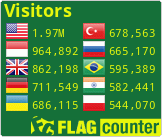Exploring Intellectual Property Issues in Counterfeit Shoe Purchases
A Sociological and Sharia Economic Law Perspective
DOI:
https://doi.org/10.32332/muamalah.v3i2.9235Keywords:
jual beli, sepatu kw, sosiologi hukum islamAbstract
Copyright is part of the branch of Intellectual Property Rights which is important for the public to understand. Copyright protection is an important issue in a free market economy. Copyright protection starting from Islamic law and also MUI Fatwa Number 1/MUNAS VII/MUI/15/2005 concerning Intellectual Property Rights certainly provides legal protection for creators. In reality, the behavior of purchasing KW shoes is considered normal by society. The aim of this research is to determine the purchasing behavior of KW shoes by students of the Sharia Economic Law Study Program, Sharia Faculty, IAIN Kediri, and analyze it in a sociological review of Islamic law. This research is field research with a qualitative descriptive approach with sociological analysis of Islamic law. The data collection method used is through observation, interviews and documentation with students who are directly related to the research. The data that has been obtained is then analyzed and concluded. The results of this research show that students of the Sharia Economics Law Study Program purchased KW shoes by purchasing them in offline stores and online stores. There are several motivations for students to buy KW shoes, namely the ease of finding KW shoe products, wanting to get the latest models, variations and colors, cheap and negotiable prices. The factors behind students buying KW shoes are economic, cultural and understanding of Islamic law. The level of religious practice and application of the MUI Fatwa to students regarding the purchase of KW shoes is still quite low because in practice students emphasize the economic side rather than rules that are in accordance with sharia. Understanding and practice of Islamic law is still quite low, giving rise to a lack of legal compliance with the importance of respecting the rights of others.
Downloads
References
Published
Issue
Section
License
Copyright (c) 2025 Siti Nurhayati, Muhamad Syafik Muafa, Cecep Soleh Kuriawan, Zakiyatus Soimah

This work is licensed under a Creative Commons Attribution-ShareAlike 4.0 International License.
All articles in the Mu'amalah: Jurnal Hukum Ekonomi Syariah can be disseminated on condition that they still include the identity of the article and the source (Mu'amalah). The publisher is not responsible for the contents of the article. The content of the article is the sole responsibility of the author.
Authors who publish this subject agree to the following terms:
First, the Authors retain copyright and grant the journal rights from the first publication with the work simultaneously licensed under a Creative Commons Attribution-ShareAlike 4.0 International License that allows others to share the work with an acknowledgement of the work's authorship and initial publication in this journal.
Secondly, the authors can enter into a separate or an acknowledgement of its initial (e.g., post-institutional repository or publish it in a book) publication in this journal.
![]()
Third, the authors are permitted and encouraged to post their work online (e.g., in institutional repositories or on their website) before publishing work is cited.








